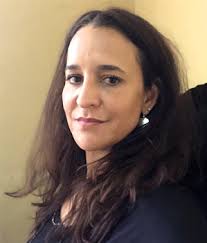Ethiopia has said that there was no government directive aimed at shutting the door on East Africa’s largest mobile money firm, M-Pesa. This was in reaction to media claims that the country has shut out the operations of M-Pesa in Ethiopia. This was made known by the digital transformation adviser to the Ethiopian Prime Minister Myriam Said.

Ms. Said has been at the helm of an Ethiopian fintech start-up for eight years before she became director of the Digital Transformation Program at the Ministry of Innovation and Technology for nine months before joining the Office of the Prime Minister last February.
She currently advises the office on strategic matters related to digital technology, ranging from liberalising the telecoms sector to drawing up a start-up act, not to mention fostering openness to foreign investment. In Ethiopia, only 24% of the population has internet access, making it one of the least connected countries on the continent.
Speaking on the digital divide in the country, Said said that the country lacks telecommunications infrastructure, especially towers [there are 8,000 today, but about 10 times that number are needed] to connect rural areas to the internet. “This is one of the reasons why the government decided to liberalise the telecoms sector and privatise a portion of Ethio Telecom, two processes that are currently under way.
We’re behind, but that shouldn’t obscure the fact that we’ve accomplished a significant amount of work this past decade. Our main achievement was the installation of 35,000 kilometres of fibre optic cables, which means our country has a solid infrastructure backbone. To date, between 80% and 85% of Ethiopia’s major cities are connected to the fibre optic network.
On the two licences for telecommunications operators that were originally set to be issued in March 2020, she said that the postponement is for purely administrative reasons. The Ethiopian Communications Authority [ECA] according to her is still in its infancy and we need to strengthen its skill set by continuing to hire more professionals and by developing various regulatory frameworks. At this time, the ECA is working, for instance, on developing a universal telecommunications service.
It could be recalled that in April, while the Kenyan telecoms giant Safaricom was in talks with the Ethiopian authorities to launch its M-Pesa app, the country’s central bank, the National Bank of Ethiopia was against the proposed launch insisting that it can only allow locally-owned non-financial institutions to offer mobile money services. This according to Said is because unlike Kenya, where the telecoms sector has influence, Ethiopia is a country in which banks have clout. Ethio Telecom can’t, for example, launch its own mobile banking service. It has to create a joint venture with a banking institution and form a company specific to that project. “So, we didn’t shut the door to M-Pesa. Instead, we’ve asked them to partner with an Ethiopian bank.
She equally pointed out that the country is drawing up a law that facilitates the growth of digital start-ups. And as part of that process, the draft law establishes three main measures. The first concerns tax exemptions for businesses and all other players, such as incubators, taking part in the growth of the digital economy.

